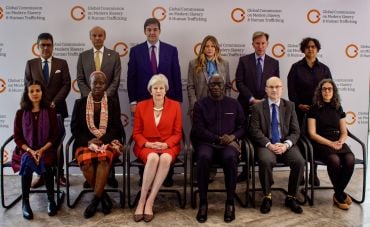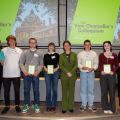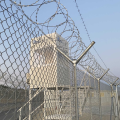
Global Commission on Modern Slavery & Human Trafficking to lead international battle to end forced labour
Oxford Professor Andrew Thompson this week joined survivors, activists, business leaders and international diplomats as commissioners of a government-backed global initiative confronting modern slavery, led by the former UK Prime Minister Theresa May MP.
The Global Commission on Modern Slavery & Human Trafficking is funded by the UK and Bahrain governments with the aim of driving international momentum towards eradicating forced labour, ending modern slavery and human trafficking – in line with UN goals.
 Global Commission on Modern Slavery & Human Trafficking.
Global Commission on Modern Slavery & Human Trafficking.It is envisaged that, from launch, the Global Commission will have two phases:
- In the first 12-18 months, a flagship report will be produced, with recommendations on how to reverse the recent increase in modern slavery. It will also include an action plan.
- Then will come an implementation phase, in which the Commission will work with other agencies, organisations and governments to remove the obstacles to effective collaboration and implementation.
Professor Thompson adds, ‘Its task will be to make a real difference around the world in helping governments, businesses and civil society to reverse the recent alarming increases in slavery and trafficking, in order to get us back on track towards achieving the agreed aim of the United Nations Sustainable Development Goals of eradicating them by 2030.’
He concludes, ‘The Commission recognises the vital importance of cutting-edge research in the humanities and social sciences in informing policy and practice in this field.’
Full details of the 16-strong panel of commissioners can be seen here.
 Landmark study definitively shows that conservation actions are effective at halting and reversing biodiversity loss
Landmark study definitively shows that conservation actions are effective at halting and reversing biodiversity loss
 Researchers find oldest undisputed evidence of Earth’s magnetic field
Researchers find oldest undisputed evidence of Earth’s magnetic field
 Honorary degree recipients for 2024 announced
Honorary degree recipients for 2024 announced
 Vice-Chancellor's innovative cross-curricular programme celebrated
Vice-Chancellor's innovative cross-curricular programme celebrated
 New database sheds light on violence in Greek detention facilities
New database sheds light on violence in Greek detention facilities